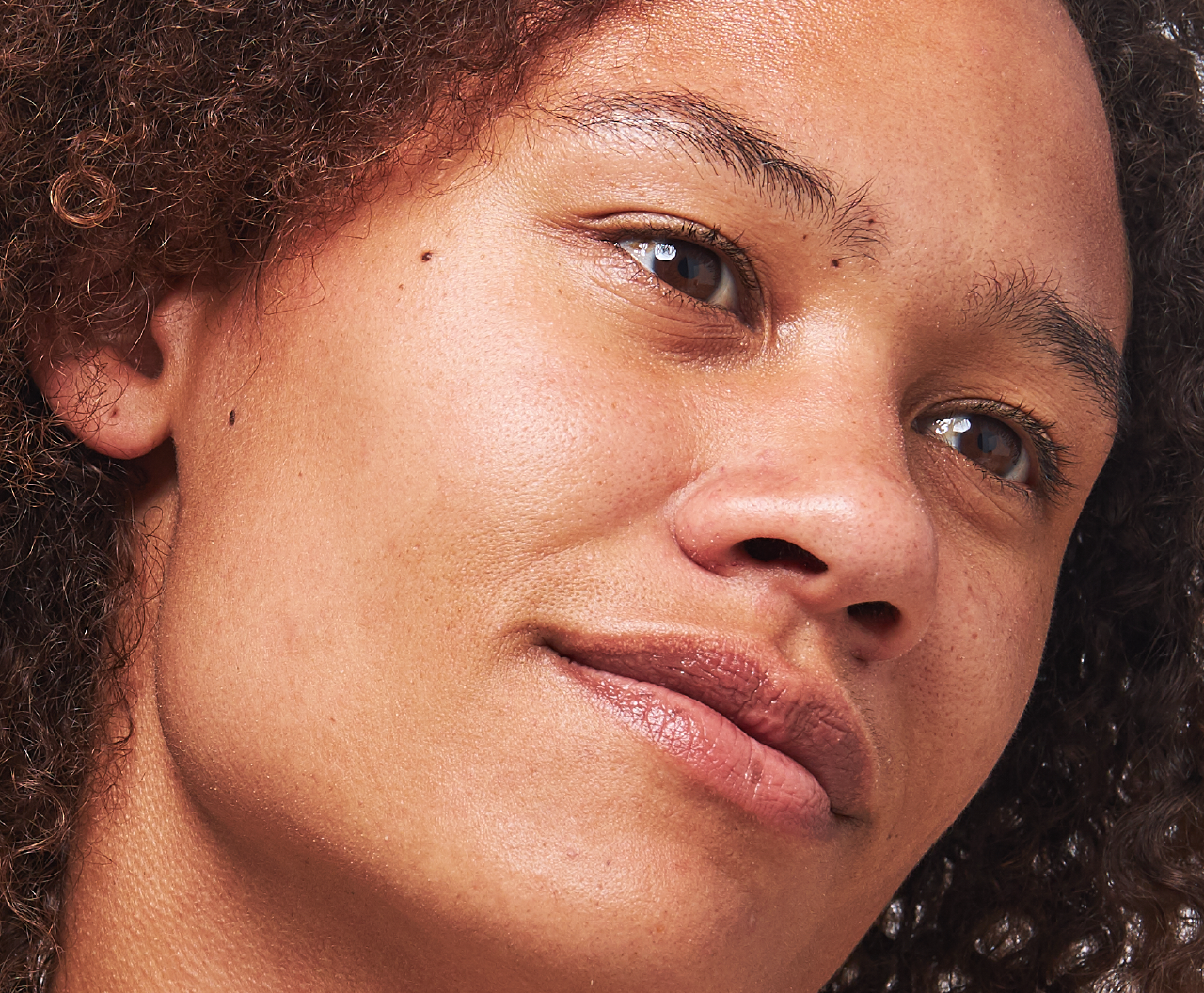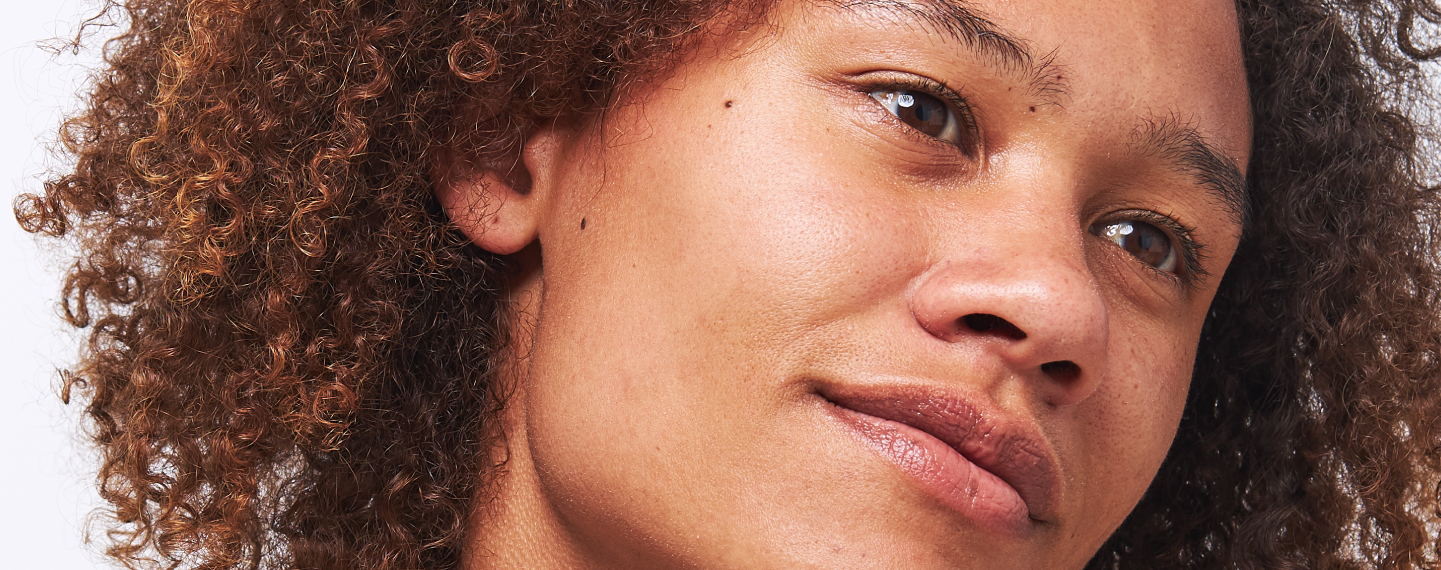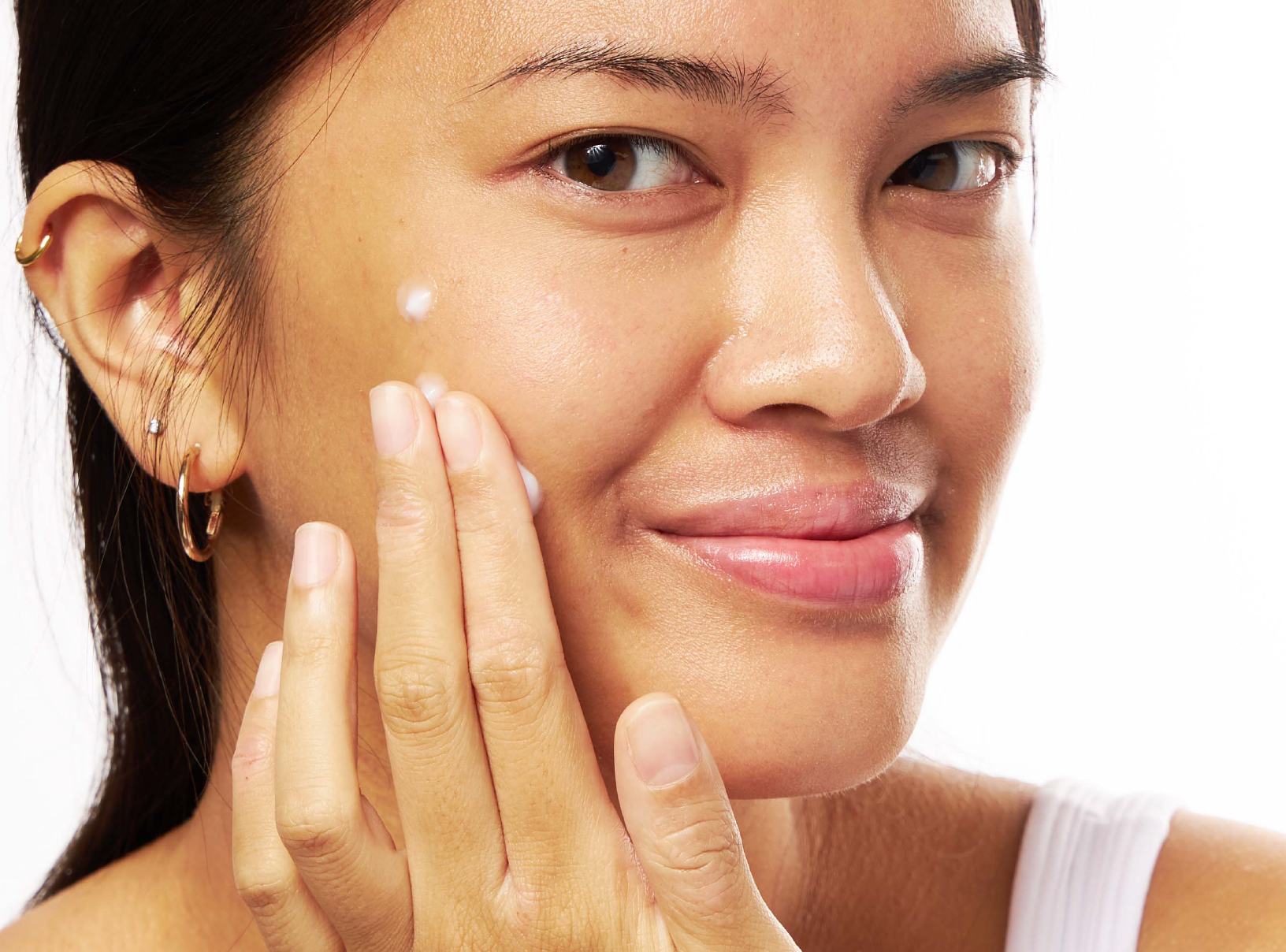Education
Turmeric for acne: What are the benefits?


SHARE
Education
Turmeric for acne: What are the benefits?
Medically reviewed by Kristin Hall, FNP
Written by Apostrophe Team
Last updated 11/1/2024
Search online for natural treatments for acne and you’ll come across countless different options, from essential oils to manuka honey, apple cider vinegar, and others.
One widely promoted natural treatment for acne is turmeric -- a plant-based spice that’s used in traditional East Asian and Indian medicine.
Although research has shown that turmeric may have antimicrobial properties that could help treat certain types of acne, there isn’t much research on its effectiveness as a natural treatment for acne breakouts.
Below, we’ve explained what turmeric is, as well as how it may be useful for treating some types of acne. We’ve also looked at the possible side effects you might experience if you use turmeric to treat and control acne breakouts.
Finally, we’ve looked at safe, science-backed treatments that you can use to treat acne and keep your skin clear.
Turmeric and Acne: The Basics
Turmeric is a plant-based spice. Although it’s primarily used in cooking, it has a history as a treatment for various ailments in traditional East Asian and Indian medicine.
You can buy turmeric over the counter as a cooking ingredient and as a natural health supplement.
While some research shows that turmeric may control the growth of some acne-related bacteria, there’s no scientific proof that it gets rid of acne directly.
Overusing turmeric supplements may cause side effects, including diarrhea, allergic skin reactions, and iron deficiency.
If you’re prone to acne, it’s best to stick with science-backed, FDA-approved treatments that control breakouts and prevent the growth of bacteria.
What is turmeric?
Turmeric is a plant in the ginger family. It’s native to Southeast Asia and has a long history as an ingredient in traditional East Asian and South Asian medicine.
Historically, turmeric has been used as a natural treatment for diseases and disorders that affect the respiratory system, digestive system, skin, and joints.
These days, turmeric is often used as a spice in many Asian and Indian dishes. It’s an important ingredient in curries, mustards, and other foods thanks to its warm, bitter flavor and eye-catching yellow color.
Turmeric is widely available as a dietary supplement. It’s often promoted as a natural treatment for arthritis, allergies, depression, digestive and respiratory issues, liver disease, and a range of other conditions.
While some of turmeric’s benefits are supported by science, others aren’t, making it important to understand how turmeric works before viewing it as a potential treatment for ailments.
How Acne Develops
In order to control acne effectively, it’s important to understand the basic process through which whiteheads, blackheads, and other forms of acne develop.
Acne develops when your hair follicles, or pores, become clogged with sebum and/or dead skin cells.
Sebum is a natural oil that’s produced by your skin. It’s secreted by your sebaceous glands and plays a major role in locking in moisture and protecting your skin from injury and infection.
Normally, your sebaceous glands secrete just enough sebum to keep your skin moist, protected, and healthy. However, certain factors can increase your sebum production, causing your skin to become overly oily.
Common causes of excessive sebum production include hormonal fluctuations, exposure to too much sunlight, tight clothing, genetic factors, and the use of medications like lithium or steroids.
We’ve talked more about these, as well as what you can do to manage them, in our guide to the causes of acne.
When your sebaceous glands secrete too much sebum, the excess oil can build up on your skin and clog your hair follicles, causing acne.
At the same time, several other factors can also contribute to acne. For example, dead cells left behind by your skin’s epidermal turnover process can slowly build up on the surface of your skin and mix with sebum to clog your hair follicles.
Artificial oil from skin care and hair styling products can also make its way into your hair follicles and contribute to blockages.
Finally, bacteria such as Propionibacterium acnes (P. acnes, also now known as C. acnes) can multiply inside the hair follicle, causing acne to become infected, inflamed, and painful.
All treatments for acne, whether natural or artificial, work by targeting one of the root causes of acne. This could mean:
Reducing sebum levels, either by reducing sebum production or cleansing away sebum on the surface of your skin.
Preventing dead skin cells from building up on your skin.
Inhibiting the growth of acne-causing bacteria like P. acnes.
We’ve talked more about this process and treatment options in our full guide to science-backed treatments for acne.
Turmeric and Acne
Although research into turmeric’s effects on acne is limited, several studies have looked at the potential effects of turmeric on general skin health and wellbeing.
One scientific review published in 2016 analyzed the possible effects of oral and topical turmeric on skin health.
The researchers looked at data from 18 studies of turmeric and curcumin products. In 10 of the studies, the turmeric/curcumin products produced a statistically significant improvement in skin disease severity when compared to non-therapeutic placebo treatments.
A different scientific review published in 2019 concluded that curcumin, a compound isolated from turmeric, may represent a low-cost, well-tolerated, effective treatment for some skin diseases.
The effects of turmeric on skin health may be due to the presence of curcumin, a natural type of polyphenol. Curcumin, which is known for its anti-inflammatory and antioxidant benefits, is found in turmeric in large quantities.
In fact, curcumin alone accounts for approximately 90 percent of the overall curcuminoid content of turmeric.
Research has shown that curcumin may be effective at controlling the growth of certain forms of bacteria, including the bacteria that can contribute to acne breakouts.
For example, a study published in the Journal of Photochemistry and Photobiology found that a combination of curcumin and blue light therapy reduced the viability of the acne-related bacteria P. acnes (also known as C. acnes).
However, it also noted that curcumin on its own, without the blue light therapy, did not appear to be toxic to the P. acnes bacteria.
In short, although there’s some evidence that turmeric may be helpful for treating skin diseases, there’s currently no research that shows that it’s directly effective against acne.
As such, it’s best to think of it as a “maybe” when it comes to acne. While it might be effective at preventing breakouts and controlling acne, we just don’t know for sure yet.
Turmeric Safety & Side Effects
As a health supplement, turmeric is safe for most people. However, using too much turmeric can cause certain side effects, such as:
Diarrhea
Headache
Nausea
Rash
Yellow stool
Some research suggests that curcumin, which is found in turmeric, may cause allergic reactions such as contact dermatitis when it’s applied topically.
If you’re allergic to turmeric, you may notice itchy skin, rash, dryness, hives, blisters, and feelings of burning or stinging.
Turmeric is known to inhibit iron absorption by 20 percent to as much as 90 percent. If you take a large dose of turmeric over the course of several days or weeks, your body may not be able to absorb the iron in food.
This can lead to iron deficiency, causing you to feel fatigued, weak, and dizzy. You may develop a headache, low body temperature, or pale, sallow skin.
If you experience any symptoms of iron deficiency after using turmeric, contact your healthcare provider for assistance.
Finally, the curcumin in turmeric may interact with certain medications, including blood thinning medications such as warfarin.
Make sure to talk to your healthcare provider if you use any prescription medications, especially anticoagulants (blood thinners), before you use turmeric.
Science-Backed Treatments for Acne
Overall, the evidence that turmeric treats acne is interesting but far from comprehensive. While some studies show that the curcumin in turmeric may help to treat skin diseases, the amount of research that’s available is very limited at this point in time.
However, several science-backed, proven treatments for acne are available, including affordable and readily available over-the-counter products that you can find in your local drugstore.
If you’re prone to acne breakouts, you may want to consider treating your acne using one of the following options:
Cleansers. These work by washing away sebum, dead skin cells, and other substances that can clog pores and contribute to acne.
Benzoyl peroxide. A common ingredient in facial cleansers, benzoyl peroxide helps to get rid of the bacteria that cause papules, pustules, and other inflammatory acne.
Salicylic acid. A beta-hydroxy acid, salicylic acid unclogs hair follicles and reduces the redness and swelling that occur with certain types of acne.
If you have moderate to severe acne, or if you get persistent breakouts that don’t improve with over-the-counter products, it’s best to talk to a healthcare provider about using FDA-approved medication to treat your acne.
Several safe, effective prescription medications are available to treat and prevent acne. Your options include:
Tretinoin. This topical medication helps control acne breakouts. It also has several anti-aging benefits, such as being able to reduce the visibility of wrinkles and discolored areas of skin. Our guide to tretinoin and hormonal acne provides more information about how tretinoin works, its effects, and more.

PRESCRIPTION TRETINOIN
Target acne, dark spots, and signs of aging with this science-backed ingredient.
Clindamycin. This topical antibiotic slows down or stops the growth of the bacteria that can get trapped inside your hair follicles and worsen acne. Our full guide to clindamycin for acne talks more about how it works, its benefits, and more.
Hormonal birth control. Several combination birth control pills, including Yaz®, Estrostep®, and Ortho Tri-Cyclen®, are approved by the FDA as treatments for acne. These medications work by changing the levels of acne-causing hormones produced by your body.
Isotretinoin. This medication is usually prescribed to treat severe acne, such as nodular acne. It’s highly effective at preventing breakouts but can cause side effects and safety issues. As such, it’s only prescribed to treat severe, persistent forms of acne.
In Conclusion
While some studies have found that turmeric may help to control the bacteria that cause some skin diseases, there’s no scientific evidence to show that it treats or prevents acne directly.
As such, it’s best to think of turmeric as a “maybe” when it comes to treating acne. While it may be helpful for your skin, we just don’t know yet whether or not it’s truly effective at getting rid of acne lesions or preventing breakouts.
If you have acne, the best option is to talk to a licensed healthcare provider. They can help you choose an effective treatment based on the severity of your acne, your skin type, and a range of other factors.
References:
https://www.aad.org/public/diseases/eczema/types/contact-dermatitis/symptoms
https://www.womenshealth.gov/a-z-topics/iron-deficiency-anemia
Like what you just read? Sign up for our email list to get the scoop on skincare science delivered straight to your inbox.

Deep Dives
A dermatologist shares his thoughts on the recent studies about benzoyl peroxide and benzene.
Read More
Education
What is milia?
What is milia? Today, we’re jumping into one type of bump that you may have heard about most commonly in infants — milia.
Read More
Education
Best moisturizer for acne-prone skin
If you have combination acne-prone skin, figuring out which moisturizer is best for your skin might be tough. In this guide, we break down the best moisturizer for combination, acne-prone skin.
Read More
